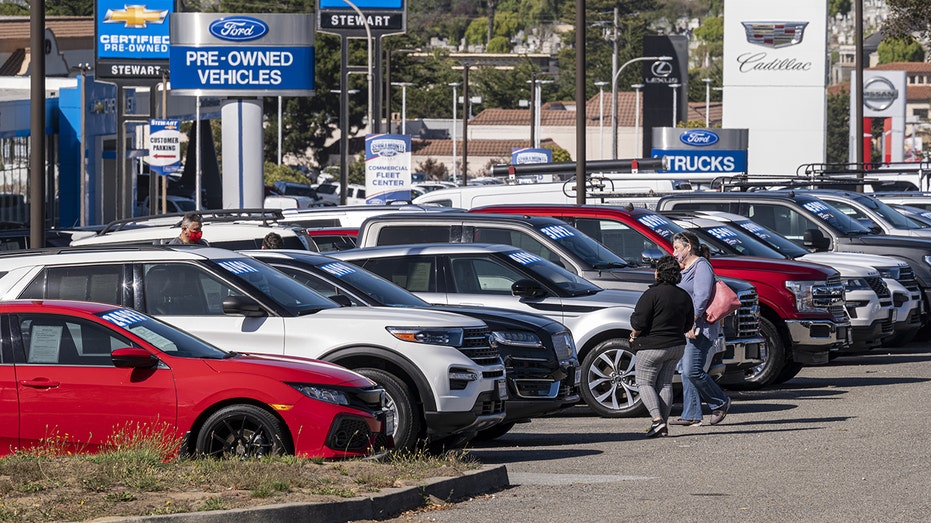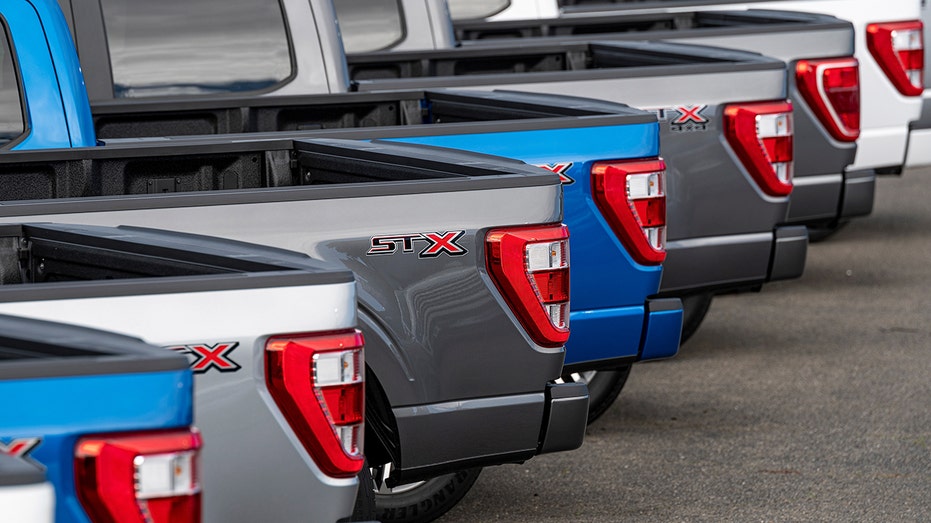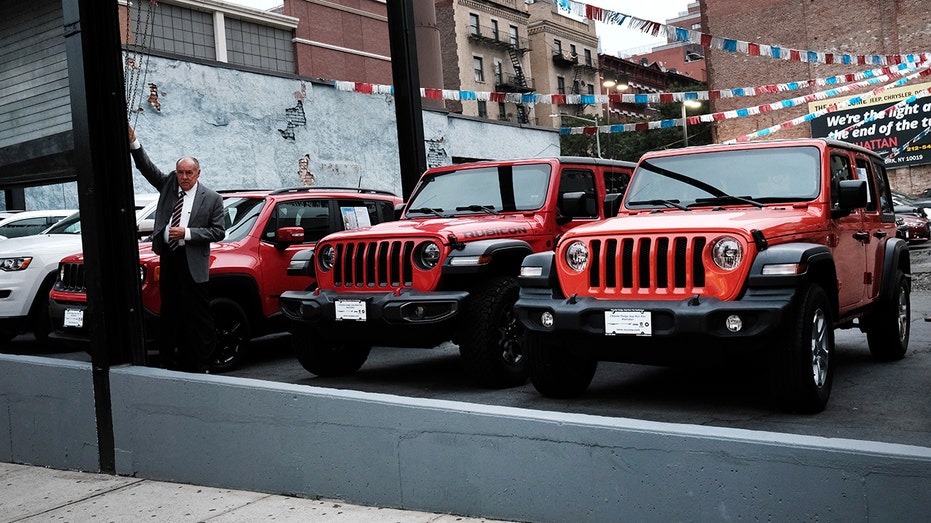GLJ Research founder and CEO Gordon Johnson and Gerber Kawasaki president and CEO Ross Gerber debate the case for Tesla on 'The Claman Countdown.'
The U.S. economy is on a steady footing and the unemployment rate is superlow. Yet a rising number of Americans are falling behind on their car payments.
Some 9.3% of auto loans extended to people with low credit scores were 30 or more days behind on payments at the end of last year, the highest share since 2010, according to an analysis by Moody’s Analytics.
The past few years have been unusually good for consumers, who stowed away extra money during the pandemic, but sky-high inflation is eating away at those gains. Car prices, in particular, jumped because of a shortage of vehicles. Many borrowers took out large loans to buy them, leaving little breathing room to keep up with payments if they hit a rough patch.
"The households that were on the financial ledge to begin with might have been tipped to the point where it’s hard to keep up on the car loan and everything else, and people have to make some very hard decisions," said Pamela Foohey, a professor at Cardozo School of Law who studies consumer law.

Customers at a Ford dealership in Colma, California, July 22, 2022. (Getty Images / Getty Images)
TESLA DRIVERS WORRY ABOUT WAIT TIMES AS ELON MUSK OPEN UP SUPERCHARGER NETWORK
Stress in the auto-loan market is concentrated among borrowers with credit scores below 660 and is especially high among people with bottom of the barrel credit. But the stress could spread if the U.S. goes into a recession, as many economists expect. If job losses increase, many more consumers might find themselves unable to keep up with the record amounts of debt they took out in recent years.
Chris Woodward, of Cedar Falls, Iowa, was laid off from his software job in August, his second job loss in eight months. Soon after, he fell behind on the loan tied to his 2011 Ford Flex. While looking for a new job, he also fell behind on rent and ran up his credit-card bill, he said.
He set up a GoFundMe fundraiser as a last resort. So far his family of four has received about $10,000, which allowed him to make enough payments to hold off an auto repossession or eviction, though he remains behind and is juggling which bills to pay each month.
"It’s weird to go from having a good salary and not stressing, to, ‘How am I going to buy diapers?’" said Mr. Woodward.
Mr. Woodward bought his car in early 2022, roughly when car prices were peaking. Used-car prices jumped 47% in 2021, then fell 15% in 2022, according to the Manheim Used Vehicle Value Index, which tracks U.S. wholesale-auction values.
KIA, HYUNDAI ROLL OUT NEW ANTI-THEFT SOFTWARE UPGRADE
Borrowers who took out big loans at the height of the boom owe far more than their vehicles are worth. Those buyers are sticking lenders with bigger losses when they fall behind.
Ally Financial Inc., which operates a large auto-lending business, said in January that the loans it extended between mid-2021 and mid-2022 are experiencing bigger early losses than its other loans. In the fourth quarter, the percentage of its car loans that were more than 60 days past due rose above prepandemic levels for the first time.
Car prices peaked when borrowers’ financial profiles looked especially strong. Consumers had received government stimulus and cut back on spending early in the pandemic, which padded their savings. Then stock prices surged, and a booming economy helped people land hefty raises.
Consumers’ credit scores rose, which might have made underwriting less precise, according to Ryan Nash, an analyst at Goldman Sachs who covers banks. Lenders were able to make big loans to borrowers, sometimes on the assumption that their finances had strengthened permanently.
"2021 was a bit of the Wild West in the auto market," Mr. Nash said.

Ford Motor Co. F-150 pickup trucks for sale at a Ford Motor Co. dealership in Colma, California, Feb. 1, 2021. (David Paul Morris/Bloomberg via Getty Images)
CAR PRICES DIP AFTER AVERAGE MONTHLY PAYMENT HITS RECORD $777
Nearly a fifth of banks said they eased credit standards for auto-loan applicants in the first half of 2021, according to a Federal Reserve survey of senior loan officers, while more than a 10th did in the second half. Many said they lowered minimum credit score requirements that year.
Consumer lawyers said that when cars were in short supply during that time, some dealers were able to sell vehicles that were in worse condition, increasing the risk that they would break down or require major repairs. A key reason borrowers stop paying is that the car stops working.
"We get a tremendous number of calls from people who bought cars that never should have been put on the road," said Daniel Blinn, a Connecticut-based attorney who has sued dealerships and auto lenders.
The number of people losing their cars to repossession rose 11% in 2022 but remains below prepandemic levels, according to estimates by Cox Automotive based on wholesale auctions and default rates.

New Jeeps are displayed at a car dealership on Oct. 5, 2021, in New York City. (Spencer Platt/Getty Images / Getty Images)
GET FOX BUSINESS ON THE GO BY CLICKING HERE
Vanessa Davis, 24-year-old nurse in Fontana, Calif., said her 2022 Chevy Trax was repossessed after she missed payments because of a family emergency. Ms. Davis had to pay $600 in repossession fees to get her car back, she said, in addition to a $650 payment for the month of January.
"What we have left is just to survive," Ms. Davis said. "At this point we’re trying everything we can and the best we can to keep every single penny."
"auto" - Google News
February 19, 2023 at 12:37AM
https://ift.tt/l4C5JEA
More auto payments are late, exposing cracks in consumer credit - Fox Business
"auto" - Google News
https://ift.tt/t24ZSge
Shoes Man Tutorial
Pos News Update
Meme Update
Korean Entertainment News
Japan News Update
No comments:
Post a Comment